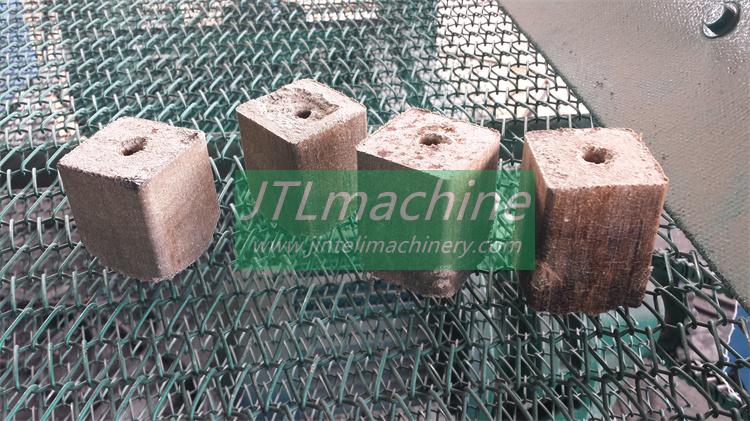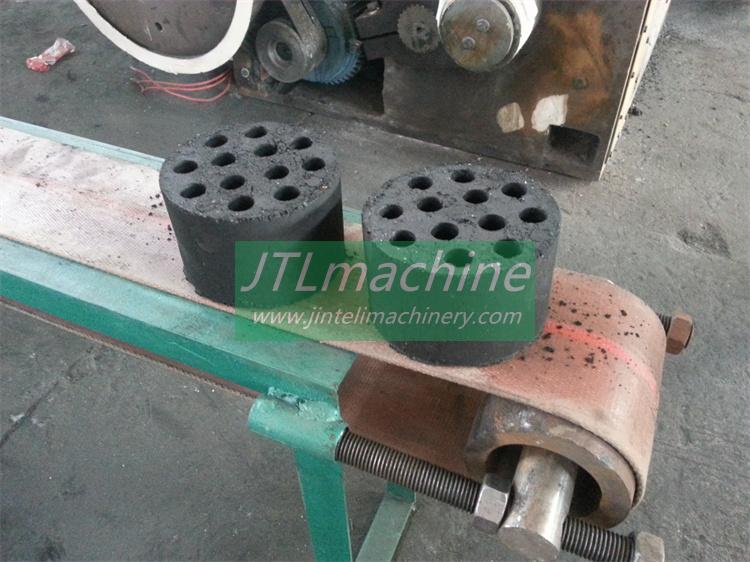Table of Contents
Efficient Production: Optimizing Operations in a hookah charcoal making machine Factory
Efficient Production: Optimizing Operations in a Hookah Charcoal Making Machine Factory Efficiency is the cornerstone of any successful manufacturing operation, and this principle holds particularly true in the realm of hookah charcoal production. The demand for quality hookah charcoal is steadily increasing, driven by the growing popularity of hookah smoking around the globe. In response to this demand, hookah charcoal making machine factories are tasked with optimizing their operations to ensure maximum output while maintaining the highest standards of quality and safety.
At the heart of every hookah charcoal making machine factory is, of course, the charcoal making machine itself. These machines are designed to efficiently convert raw materials such as coconut shells, wood, or bamboo into high-quality charcoal briquettes suitable for use in hookahs. The key to maximizing the efficiency of these machines lies in their design and maintenance. Regular maintenance schedules and diligent upkeep are essential to ensuring that the machines operate at peak performance levels, minimizing downtime and maximizing productivity.
In addition to maintaining the charcoal making machines themselves, factory operators must also focus on optimizing the production process as a whole. This includes carefully managing raw material inventory, streamlining production workflows, and implementing quality control measures to ensure that every batch of charcoal meets the highest standards of quality. By carefully analyzing each step of the production process and identifying areas for improvement, factory operators can significantly increase overall efficiency and output.
One area where optimization can have a particularly significant impact is in the drying and curing process. After the charcoal briquettes are formed, they must be properly dried and cured to remove excess moisture and ensure that they burn evenly and cleanly. This process can be time-consuming and labor-intensive if not properly managed. However, by implementing efficient drying and curing techniques, such as using specialized drying ovens or kilns, factory operators can dramatically reduce drying times and increase overall production throughput.
Another key consideration in optimizing operations in a hookah charcoal making machine factory is waste reduction. Every manufacturing process generates some level of waste, whether it be in the form of scrap material, defective products, or byproducts. Minimizing waste not only helps to reduce production costs but also has positive environmental implications. By implementing waste reduction strategies such as recycling scrap material or repurposing byproducts for use in other applications, factory operators can minimize their environmental footprint while maximizing efficiency and profitability.
Of course, no discussion of optimizing operations in a hookah charcoal making machine factory would be complete without addressing the importance of worker safety. Charcoal production can be a hazardous undertaking, with risks ranging from exposure to harmful chemicals to the potential for machinery-related accidents. Factory operators must prioritize the safety of their workers by implementing robust safety protocols, providing comprehensive training programs, and regularly inspecting equipment to identify and address potential hazards.
In conclusion, efficient production is essential for maximizing output and profitability in a hookah charcoal making machine factory. By carefully managing resources, optimizing production processes, reducing waste, and prioritizing worker safety, factory operators can ensure that their operations run smoothly and efficiently, meeting the growing demand for high-quality hookah charcoal while maintaining the highest standards of quality and safety.
Efficiency is the cornerstone of any successful manufacturing operation, and this principle holds particularly true in the realm of hookah charcoal production. The demand for quality hookah charcoal is steadily increasing, driven by the growing popularity of hookah smoking around the globe. In response to this demand, hookah charcoal making machine factories are tasked with optimizing their operations to ensure maximum output while maintaining the highest standards of quality and safety.
At the heart of every hookah charcoal making machine factory is, of course, the charcoal making machine itself. These machines are designed to efficiently convert raw materials such as coconut shells, wood, or bamboo into high-quality charcoal briquettes suitable for use in hookahs. The key to maximizing the efficiency of these machines lies in their design and maintenance. Regular maintenance schedules and diligent upkeep are essential to ensuring that the machines operate at peak performance levels, minimizing downtime and maximizing productivity.
In addition to maintaining the charcoal making machines themselves, factory operators must also focus on optimizing the production process as a whole. This includes carefully managing raw material inventory, streamlining production workflows, and implementing quality control measures to ensure that every batch of charcoal meets the highest standards of quality. By carefully analyzing each step of the production process and identifying areas for improvement, factory operators can significantly increase overall efficiency and output.
One area where optimization can have a particularly significant impact is in the drying and curing process. After the charcoal briquettes are formed, they must be properly dried and cured to remove excess moisture and ensure that they burn evenly and cleanly. This process can be time-consuming and labor-intensive if not properly managed. However, by implementing efficient drying and curing techniques, such as using specialized drying ovens or kilns, factory operators can dramatically reduce drying times and increase overall production throughput.
Another key consideration in optimizing operations in a hookah charcoal making machine factory is waste reduction. Every manufacturing process generates some level of waste, whether it be in the form of scrap material, defective products, or byproducts. Minimizing waste not only helps to reduce production costs but also has positive environmental implications. By implementing waste reduction strategies such as recycling scrap material or repurposing byproducts for use in other applications, factory operators can minimize their environmental footprint while maximizing efficiency and profitability.
Of course, no discussion of optimizing operations in a hookah charcoal making machine factory would be complete without addressing the importance of worker safety. Charcoal production can be a hazardous undertaking, with risks ranging from exposure to harmful chemicals to the potential for machinery-related accidents. Factory operators must prioritize the safety of their workers by implementing robust safety protocols, providing comprehensive training programs, and regularly inspecting equipment to identify and address potential hazards.
In conclusion, efficient production is essential for maximizing output and profitability in a hookah charcoal making machine factory. By carefully managing resources, optimizing production processes, reducing waste, and prioritizing worker safety, factory operators can ensure that their operations run smoothly and efficiently, meeting the growing demand for high-quality hookah charcoal while maintaining the highest standards of quality and safety.Sustainability in Hookah Charcoal Production: Innovations and Practices
Hookah, a traditional smoking device, has gained immense popularity globally, leading to increased demand for its essential component: charcoal. However, the conventional production methods for hookah charcoal often pose environmental and health hazards. In response to these challenges, the emergence of hookah charcoal making machine factories signifies a shift towards more sustainable practices in the industry. In addition to environmental benefits, hookah charcoal making machine factories also address concerns regarding labor conditions. Traditional charcoal production often involves manual labor in hazardous conditions, exposing workers to health risks. By automating the process, these factories prioritize the safety and well-being of workers while improving productivity.
Furthermore, the establishment of hookah charcoal making machine factories contributes to local economies by creating job opportunities and supporting small-scale entrepreneurs. This fosters economic growth in regions where the hookah industry is prevalent, empowering communities and enhancing livelihoods.
Despite these advancements, challenges remain in ensuring the sustainability of hookah charcoal production. While machine-made charcoal is generally more environmentally friendly, the sourcing of raw materials must be carefully managed to prevent overexploitation of natural resources. Additionally, the energy consumption of these machines and the disposal of byproducts require attention to minimize their ecological footprint.
To address these challenges, ongoing research and development are essential to improve the efficiency and sustainability of hookah charcoal making machines. Innovations in energy-saving technologies and alternative materials can further enhance the eco-friendliness of the production process.
In addition to environmental benefits, hookah charcoal making machine factories also address concerns regarding labor conditions. Traditional charcoal production often involves manual labor in hazardous conditions, exposing workers to health risks. By automating the process, these factories prioritize the safety and well-being of workers while improving productivity.
Furthermore, the establishment of hookah charcoal making machine factories contributes to local economies by creating job opportunities and supporting small-scale entrepreneurs. This fosters economic growth in regions where the hookah industry is prevalent, empowering communities and enhancing livelihoods.
Despite these advancements, challenges remain in ensuring the sustainability of hookah charcoal production. While machine-made charcoal is generally more environmentally friendly, the sourcing of raw materials must be carefully managed to prevent overexploitation of natural resources. Additionally, the energy consumption of these machines and the disposal of byproducts require attention to minimize their ecological footprint.
To address these challenges, ongoing research and development are essential to improve the efficiency and sustainability of hookah charcoal making machines. Innovations in energy-saving technologies and alternative materials can further enhance the eco-friendliness of the production process.






